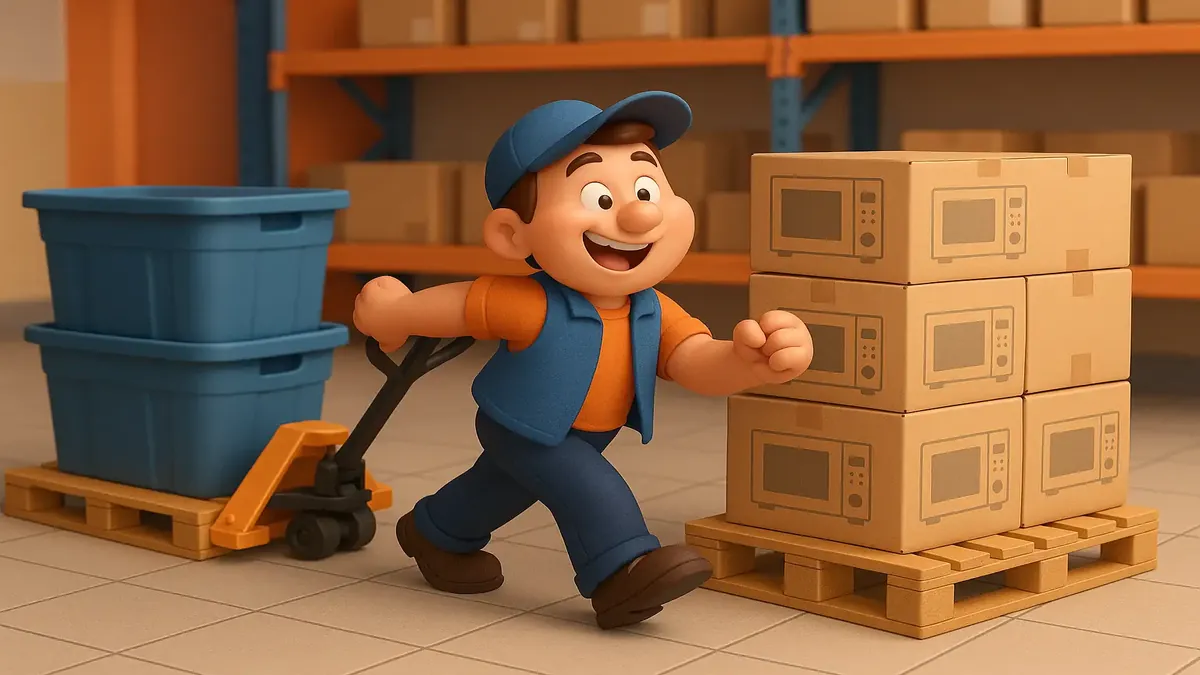When “More Pallets” Means Less Work: The Art of Malicious Compliance in Retail

If you’ve ever spent time in retail, you know it’s a world where common sense sometimes takes a backseat to arbitrary metrics. Managers love numbers, and nothing gets them more excited than a good ol’ productivity chart. But what happens when the numbers don’t tell the whole story? That’s where our hero from r/MaliciousCompliance, u/surrenderedmale, comes in—with a tale of petty revenge, efficiency, and a lesson in why you should be careful what you wish for.
The Pallet Predicament
Picture this: you’re hustling on the sales floor, moving pallet after pallet of homeware goods—from bulky bins to delicate makeup. You’re giving it your all, but management says you’re not moving "enough" pallets. Never mind the fact that some pallets are packed with hundreds of tiny items, turning every shift into a game of retail Tetris. No, the metric is simple: number of pallets moved.
Enter malicious compliance—a favorite move of seasoned retail veterans everywhere. Our protagonist decides, if it’s just about pallet count, why not focus on the easy wins? Out with the tricky pallets of knick-knacks and in with the big-ticket items: microwaves, storage bins, anything that can be shelved in a flash.
When “Effort” and “Efficiency” Don’t Align
Suddenly, pallet productivity soars. Management is thrilled, heaping praise upon our clever worker for “completely turning things around.” But behind the scenes, chaos quietly unfolds. The small, time-consuming pallets—filled with soap, makeup, and other bits of homeware—start piling up. While our hero breezes through the day, the rest of the team is left to face mountains of fiddly items just when the store is busiest.
This is the crux of the story: sometimes, doing what you’re told isn’t the same as doing what’s best. By gaming the system (and following orders to the letter), u/surrenderedmale reveals a flaw in the system itself—a flaw many of us have probably encountered in our own workplaces. The result? A “piss poor workflow,” as the post so delightfully puts it, and a staff more stressed than ever.
The Sweet Taste of Vindication
Here’s where the story takes its most satisfying turn. When the manager, blind to the brewing storm, congratulates our protagonist for their newfound productivity, the truth comes out: “I probably worked less hard and explained what I did.” The reaction, we imagine, was priceless—a mix of confusion, frustration, and begrudging respect.
It’s not a story of outright sabotage or laziness. As the author admits, the compliance wasn’t fully malicious. They were already one of the harder workers on the team. But there’s something deeply rewarding about getting a little payback on a system that values metrics over real effort.
Lessons from the Stockroom
So, what can we learn from this tale of retail rebellion?
-
Metrics Aren’t Everything: When you measure productivity by a single number, you risk encouraging the wrong behaviors. Sometimes, the “easy wins” aren’t actually the most helpful.
-
Listen to Your Employees: The people on the front lines often know the job better than those in the office. If someone says a process doesn’t make sense, it’s worth listening.
-
Work Smarter, Not Harder: Sometimes, the best response to an unreasonable request is to follow it exactly—if only to prove why it doesn’t work.
And, perhaps most importantly: never underestimate the creativity of a bored employee with a point to prove.
Share Your Own Malicious Compliance Stories!
Have you ever “complied” your way into a better (or at least more entertaining) workday? Do you have your own stories of metric-mad managers and retail shenanigans? Drop your tales in the comments below! And remember—for every silly system, there’s a clever worker ready to teach it a lesson.
Whether you’re a retail veteran or just someone who appreciates a good underdog story, this tale is a reminder that sometimes, the best way to win is to play by the rules... in the most unexpected way possible.
Original Reddit Post: Not working enough pallets, so I worked more pallets (retail)